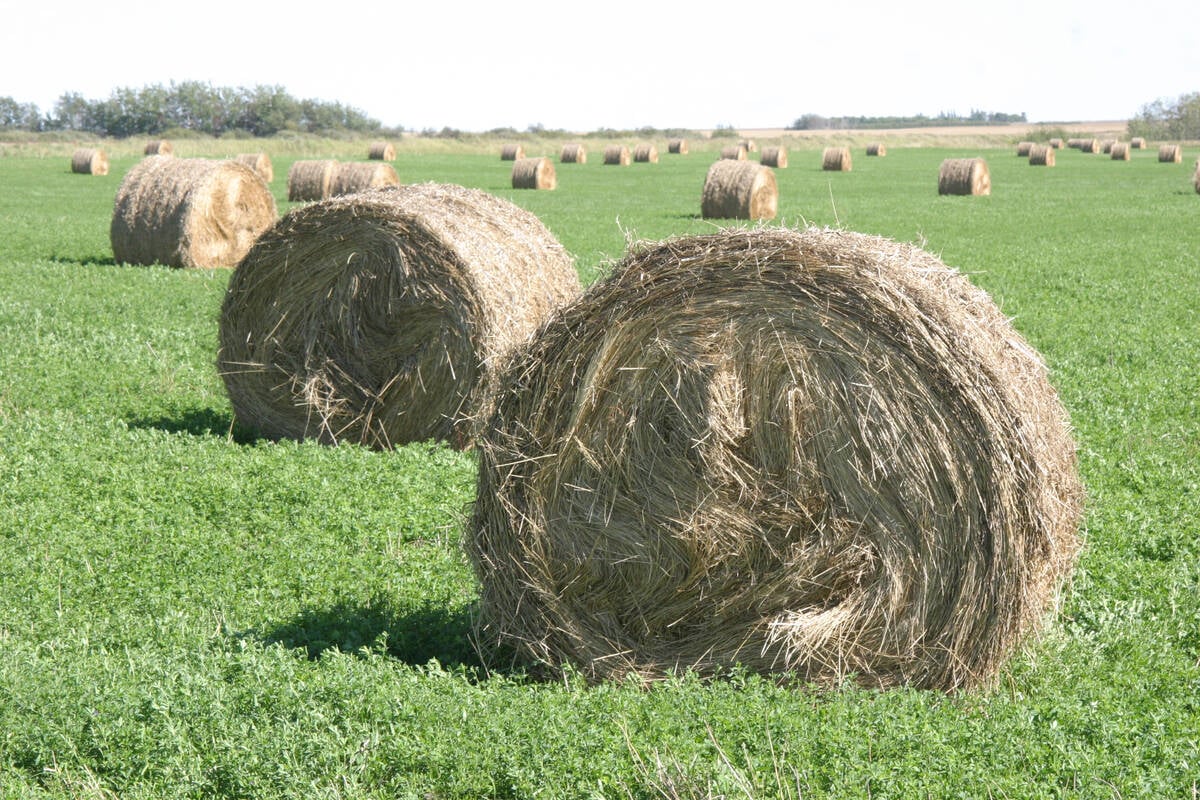STRATHMORE, Alta. – During the harvest of 1923, Jim Miller’s father traveled the countryside gathering farmer pledges to support the fledgling Alberta Wheat Pool.
The elder Miller also supported the concept of a wheat board. Co-operation among farmers who pooled their grain and accepted an average price through a central buying agency seemed like a good idea at the time.
But in today’s competitive marketing climate, his son isn’t so sure.
“This system of pooling and averaging usually works to our disadvantage,” said Miller.
Read Also

Breaking down successful winter feeding into six steps
It’s that time of year when it is important to start planning for a cow herd’s winter feeding program. Here are six steps I think are necessary to consider when getting your feed tested.
The Rockyford farmer joined a group of about 50 for an information session about the Alberta plebiscite on barley and wheat marketing. While Miller questioned the role of the modern Canadian Wheat Board, he isn’t convinced a farmer vote is the right way to decide the issue.
Besides concerns that the voter turnout will be skimpy and diminish the impact of the vote, he feels farmers should force the issue of reform in other ways, such as not delivering grain if prices are unsatisfactory.
“Farmers should vote with their trucks,” he said.
Sponsored by Unifarm, the session had wheat board communications officer Bob Roehle explain the role of the board and in some instances defend its practices before an aggressive, largely pro-dual market crowd.
Roehle told the gathering that a dual market and a statutory monopoly couldn’t exist together.
“It’s a bit like being married or single. There’s not too much room in the middle. You either have one or the other,” he said.
The power of the agency would be gutted and would quickly lose its government alliance because other grain agencies would complain about taxpayer support.
In partnership with the federal government, Roehle said Ottawa guarantees payment to farmers on all grain sold on credit. Even if a client can’t pay right away, the western farmer will still get his money.
Secondly, if the board’s powers diminish, the government would likely discontinue underwriting $6 billion in loans the board must take to cover the cost of doing business until Canada is paid for grain.
While farmers at Strathmore said they could easily service the western U.S. barley markets, Roehle countered that the United States has been an “island of high prices in a world of low prices.” This is largely because the American Export Enhancement Program has shorted domestic stock and driven prices higher in the U.S.
Roehle said the average farmer would struggle in the international grain trade.
Dan Cutforth of Barons, who sits on the wheat board advisory committee as a dissenting voice from southern Alberta, said $4.28 a bushel for feed barley obtained by the board looks good. However the ordinary farmer selling to the board won’t see that premium because prices are pooled for the crop year among all farmers.
By selling direct to an American buyer the farmer pockets the full amount of money quickly.
Alberta Barley Commission chair Tim Harvie questioned where all the wheat board supporters are when the board is unable to find enough barley to fill customer’s orders.
“Farmers don’t trust the board with their barley right now,” he said.















